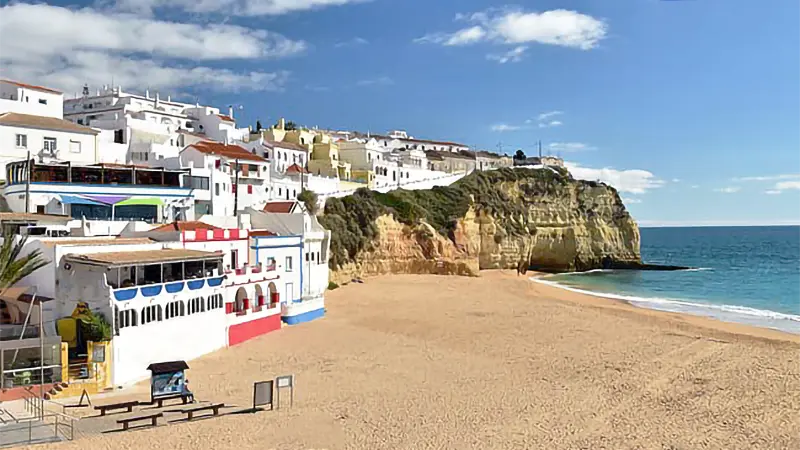How to move to Portugal from the UK has become one of the most searched relocation topics among British citizens seeking a new life abroad. Portugal offers an attractive combination of beautiful landscapes, favorable climate, rich culture, and welcoming communities that make it an ideal destination for UK residents looking to relocate permanently or establish a second home.
The process of relocating from the UK to Portugal involves several steps, from obtaining the right visa to finding suitable property and understanding tax implications. This comprehensive guide will walk you through everything you need to know about making your move to Portugal successful and stress-free.
Visa Requirements and Legal Status After Brexit
Since Brexit, UK citizens need to navigate new requirements when considering how to move to Portugal from the UK permanently. The process has changed significantly, but Portugal remains accessible through various visa programs designed to attract international residents and investors.
British citizens can stay in Portugal for up to 90 days within any 180-day period without a visa for tourism purposes. For permanent relocation, you’ll need to apply for a residence permit before arriving or within the first 90 days of your stay.
The D7 Visa, also known as the Passive Income Visa, is popular among UK retirees and remote workers. This visa requires proof of passive income equivalent to Portugal’s minimum wage (approximately €760 per month) and allows for permanent residency after five years.
For those with higher investment capacity, the D2 Visa (Entrepreneur/Investment Visa) provides an alternative path. This option requires demonstrating financial means to support yourself and potentially create employment opportunities in Portugal.
Working professionals can pursue the D1 Visa if they have a job offer from a Portuguese employer. This route requires pre-arrangement with an employer and proof of professional qualifications.

Tax Implications and Benefits
Portugal offers attractive tax benefits for UK residents, particularly through the Non-Habitual Resident (NHR) program. This program provides significant tax advantages for new residents during their first ten years of Portuguese tax residency.
Under the NHR program, foreign-sourced income may be exempt from Portuguese taxation, depending on the type of income and tax treaties between Portugal and the source country. UK pensions, for example, may qualify for favorable tax treatment.
Property owners in Portugal are subject to Municipal Property Tax (IMI), which ranges from 0.3% to 0.45% of the property’s tax value annually. This rate is generally lower than council tax rates in the UK, providing ongoing savings for property owners.
Capital gains tax applies to property sales, but residents benefit from exemptions if they reinvest proceeds in Portuguese property or meet specific criteria related to primary residence sales. Professional tax advice is recommended to optimize your tax position.
Banking and Financial Services
Establishing banking relationships is a crucial step when relocating to Portugal. Portuguese banks offer services specifically designed for international residents, with many providing English-speaking support and online banking in multiple languages.
Opening a Portuguese bank account requires your NIF, proof of address, and identification documents. Some banks may require proof of income or employment, particularly for mortgage applications or investment services.
UK banks may continue serving Portuguese residents, but local banking relationships often provide better rates for currency exchange, lower transaction fees, and easier access to Portuguese financial products like mortgages and investment accounts.
Consider the implications of currency exchange when moving funds from the UK to Portugal. Professional currency exchange services often provide better rates than traditional banks, potentially saving thousands on large transactions like property purchases.

Professional Services and Support
Working with experienced professionals makes the relocation process smoother and reduces potential complications. Legal services are essential for property transactions, visa applications, and understanding Portuguese law.
Property advisors provide valuable market knowledge and can identify suitable properties that match your lifestyle and budget requirements. Professional guidance helps avoid common mistakes and ensures you make informed decisions about your Portuguese property investment.
Tax advisors help optimize your financial position and ensure compliance with Portuguese tax obligations. Given the complexity of international taxation, particularly post-Brexit, professional advice can save significant money and prevent legal issues.
Timeline and Planning Your Move
Planning how to move to Portugal from the UK requires careful timing and preparation. The process typically takes 3-12 months, depending on your visa route and property purchase timeline.
Begin with research and visa applications 6-12 months before your planned move date. Property searches can run concurrently, but serious viewings should align with visa progress to avoid complications.
Allow 2-3 months for property transactions once you’ve identified your preferred home. This timeframe accounts for legal procedures, financing arrangements, and any necessary renovations or preparations.
Final preparations, including shipping belongings, arranging utilities, and completing administrative tasks, should begin 4-6 weeks before departure. Create detailed checklists to ensure nothing important is overlooked during this busy period.
If you’re ready to explore how to move to Portugal from the UK, contact our team today. We’re here to guide you through every step of your Portuguese adventure, ensuring your relocation dreams become reality.

